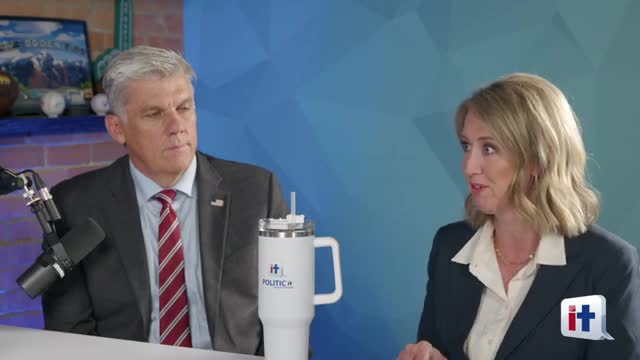Candidates Demand Transparency Amid Election Signature Controversy
June 22, 2024 | Policicit Moderator Senator John Johnson, Citizen Journalism , 2024 -2025 Utah Citizen Journalism, Elections, Utah

This article was created by AI summarizing key points discussed. AI makes mistakes, so for full details and context, please refer to the video of the full meeting. Please report any errors so we can fix them. Report an error »

In a recent government meeting, discussions centered around the transparency of candidate signature gathering processes and the public's growing frustration with perceived governmental opacity. Participants raised concerns about the differing treatment of signatures for candidates compared to those for voter initiatives, highlighting a lack of access to candidate signatures that are often redacted or withheld from public view.
One speaker noted that while signatures for initiatives like \"Restore the Flag\" are publicly accessible, candidate signatures require a formal request, with up to 40% of those requests resulting in redacted information. This discrepancy has led to questions about the rationale behind the differing levels of transparency, with calls for greater openness in the electoral process.
The conversation also touched on broader themes of public trust and dissatisfaction with government responses to inquiries. Participants expressed that citizens feel increasingly misled on various issues, including COVID-19 and climate change, fueling a grassroots movement demanding accountability and change. This sentiment is reflected in the support for candidates who prioritize transparency and the integrity of elections.
As the meeting progressed, the speaker emphasized the importance of restoring trust in the electoral process, asserting that many citizens are eager for a candidate who will advocate for their rights and freedoms. Despite skepticism about the chances of success against established incumbents, there is a palpable enthusiasm among supporters for a more transparent and accountable government. The discussions underscored a critical moment in the political landscape, where calls for transparency and accountability resonate strongly with the electorate.
One speaker noted that while signatures for initiatives like \"Restore the Flag\" are publicly accessible, candidate signatures require a formal request, with up to 40% of those requests resulting in redacted information. This discrepancy has led to questions about the rationale behind the differing levels of transparency, with calls for greater openness in the electoral process.
The conversation also touched on broader themes of public trust and dissatisfaction with government responses to inquiries. Participants expressed that citizens feel increasingly misled on various issues, including COVID-19 and climate change, fueling a grassroots movement demanding accountability and change. This sentiment is reflected in the support for candidates who prioritize transparency and the integrity of elections.
As the meeting progressed, the speaker emphasized the importance of restoring trust in the electoral process, asserting that many citizens are eager for a candidate who will advocate for their rights and freedoms. Despite skepticism about the chances of success against established incumbents, there is a palpable enthusiasm among supporters for a more transparent and accountable government. The discussions underscored a critical moment in the political landscape, where calls for transparency and accountability resonate strongly with the electorate.
View full meeting
This article is based on a recent meeting—watch the full video and explore the complete transcript for deeper insights into the discussion.
View full meeting

